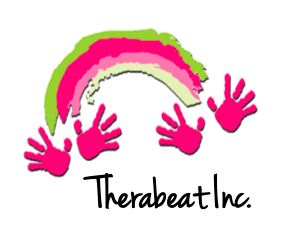A lot of our patients benefit from mindfulness or relaxation based activities during their sessions. We pair music with guided breathing and stretching in order to help them achieve a relaxed state. It is a great way to help them focus in on the present moment or de-stress from an event that has happened in their day. Since we can’t be there every time they need to reach that state, here are some apps that can be used at home. Completing a relaxation/meditation exercise can also help kids wind down and fall asleep faster at the end of the day. Below, I have reviewed three different apps and highlighted what I believe to be the strengths of each one so you may choose which might work best for your child.
1) Head Space: This is one of the original mindfulness apps out there. It can guide you through the basics of mindfulness and begins with short sessions of 3 minutes. This app is definitely a little more mature and mainly geared towards teens and adults, but does have a kids tab as well with categories by age. It does however require a subscription to unlock a lot of the content though.
· Strengths: This app provides a great variety of categories and an entire series devoted to “The Basics” to help you ease into the exercises. Even if you just get this one for the Basic series and then transition to another app, it is a great place to start.
2) Smiling Mind: This app has a cool feature that will track your meditation data for you throughout the week. They offer a variety of programs that have multiple nodules in each program and are sorted into categories based on age and length of time.
· Strengths: I really like the dashboard component so you can track your data and see what is up next in the programs you are participating in. They also offer all of their sessions for free and have varying active and meditative themed meditations. Their themes for the kid and teen programs are also very relevant and applicable for kids in there every day life.
3) Stop, Breathe, and Think/ Stop, Breathe, and Think Kids: Both of these apps are developed by the same people and are free. They have a check-in component, information on how to begin meditating, and a data tracker.
· Strengths: I absolutely love the check-in offered with this app. It will ask you how you are feeling physically, mentally, and emotionally and then recommend specific meditations based on your response. You can also just explore the activities they offer and pick for yourself if you would like. While there is some that require an additional fee, there are a lot of free activities. In the kid’s version, a screen with emojis comes up for the check-in. This also helps promote emotional awareness and give the kids a chance to assess how they are feeling in the present moment. The meditations recommended for kids are accompanied with a visual to help keep them engaged.
Overall, the Stop, Breathe, and Think apps are the most appealing to me with the check-in. I think a large part of learning to incorporate mindfulness into your life is self-awareness and the check-in helps develop that ability to examine your current state in order to know what is going to be most beneficial for you in the present moment. After using one of these apps at home, it also can be beneficial to play some relaxing white noise or background music to continue that relaxed state or help promote sleep!
Happy meditating,
Lauren Booke


